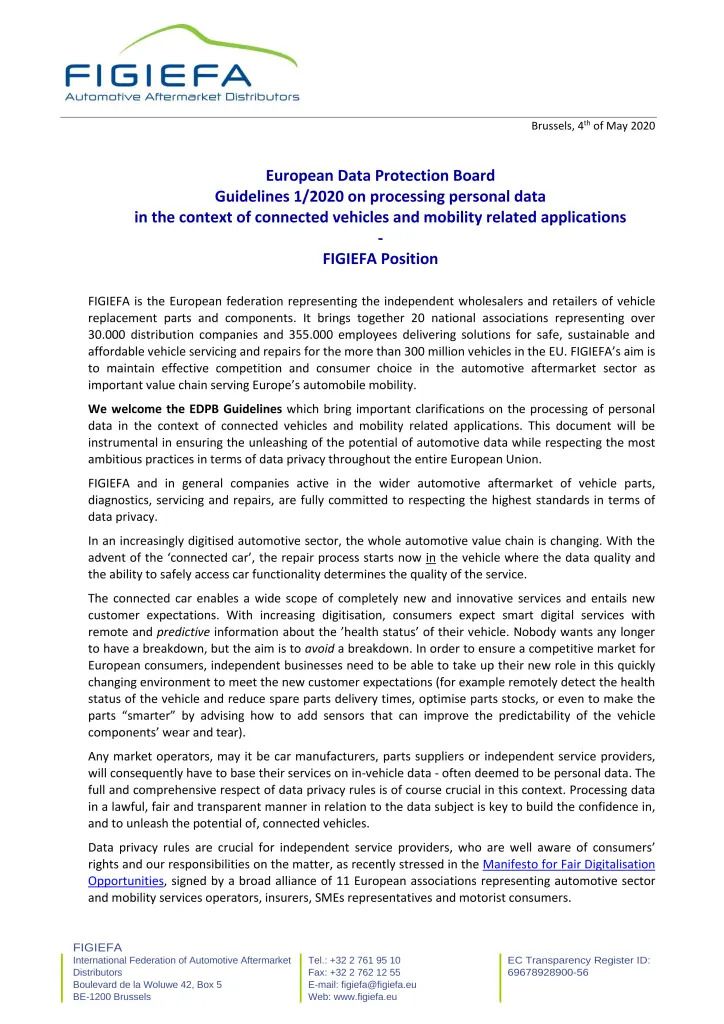We welcome the EDPB Guidelines which bring important clarifications on the processing of personal data in the context of connected vehicles and mobility related applications.
This document will be instrumental in ensuring the unleashing of the potential of automotive data while respecting the most ambitious practices in terms of data privacy throughout the entire European Union.
FIGIEFA and in general companies active in the wider automotive aftermarket of vehicle parts, diagnostics, servicing and repairs, are fully committed to respecting the highest standards in terms of data privacy.
In an increasingly digitised automotive sector, the whole automotive value chain is changing. With the advent of the ‘connected car’, the repair process starts now in the vehicle where the data quality and the ability to safely access car functionality determines the quality of the service.
The connected car enables a wide scope of completely new and innovative services and entails new customer expectations. With increasing digitisation, consumers expect smart digital services with remote and predictive information about the ’health status’ of their vehicle. Nobody wants any longer to have a breakdown, but the aim is to avoid a breakdown. In order to ensure a competitive market for European consumers, independent businesses need to be able to take up their new role in this quickly changing environment to meet the new customer expectations (for example remotely detect the health status of the vehicle and reduce spare parts delivery times, optimise parts stocks, or even to make the parts “smarter” by advising how to add sensors that can improve the predictability of the vehicle components’ wear and tear).
Any market operators, may it be car manufacturers, parts suppliers or independent service providers, will consequently have to base their services on in-vehicle data – often deemed to be personal data. The full and comprehensive respect of data privacy rules is of course crucial in this context. Processing data in a lawful, fair and transparent manner in relation to the data subject is key to build the confidence in, and to unleash the potential of, connected vehicles.

